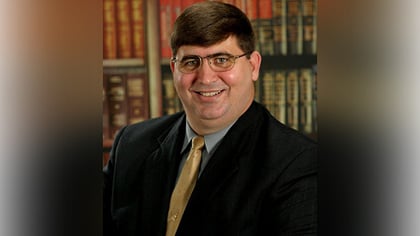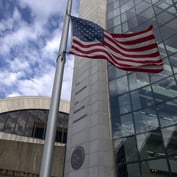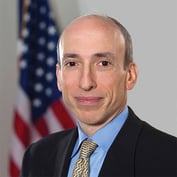The Securities and Exchange Commission has committed “the greatest securities fraud in history” by adopting Regulation Best Interest, making BDs “pretend fiduciaries” who think their duty of care can be satisfied by disclosing conflicts of interest, a belief that’s “ludicrous,” fiduciary law expert Ron Rhoades tells ThinkAdvisor in an interview.
The former estate planning attorney argues further that Reg BI “muddies” the difference between investment advisors and BDs by holding both to essentially the same standard: disclosing conflicts of interest. Rhoades is assistant finance professor and director of the financial planning program at Western Kentucky University.
He forecasts a gloomy scenario: Reg BI will result in consumers trusting advisors who aren’t held to a “bona fide” fiduciary duty to act in their best interest, then feel betrayed when they fail to do so, whereupon they’ll pull their money from the market and stop investing altogether. That withdrawal of capital will, in turn, slow U.S. economic growth.
Right now, legal challenges to Reg BI are looming, plus “a battleground” is brewing over what Rhoades calls “group boycotts” that BDs are threatening in view of Nevada’s proposed fiduciary rule and, separately, the Certified Financial Planner Board of Standards’ new rules focused on fiduciary, effective this October.
A frequent industry speaker and a consultant to the Garrett Planning Network, Rhoades, who for 10 years was chief operating officer of an investment advisory he co-founded, provides financial planning to a select group of clients.
ThinkAdvisor recently interviewed the RIA, on the phone from his office in Bowling Green, Kentucky. About Reg BI, he cautions: “If you’re an advisor [adhering to] the true fiduciary duty of loyalty, it’s going to be harder to distinguish yourself from those saying the same thing but who are not living up to the high standard of conduct you’re living up to.”
Here are highlights from our conversation:
THINKADVISOR: What’s your reaction to the adoption of Reg BI?
RON RHOADES: The SEC has made investment advisors and broker-dealers the same with basically the same standard: Disclose conflicts of interest. There are some small differences between them, but the major ones disappeared.
What are the implications?
The harm is that this regulation will convey to consumers that they can trust their broker and investment advisor [to act in their best interest] when that duty of loyalty isn’t there [for BDs]. The harm is going to far outweigh the benefits of increased disclosures by brokers. And of course, we know that disclosures generally are ineffective because consumers don’t read them — and even when they do, they don’t understand them.
You’ve tweeted that by passing Reg BI, “the SEC just committed the greatest securities fraud in history…” Why is it fraud?
The SEC has taken fiduciary duty and, in most cases, made it just a disclosure of conflict. [Heretofore] “best interest” has been used to connote the fiduciary duty of loyalty. But now, brokers have begun advertising that they act in the best interest of their customers, who are going to believe that means they represent the customer, when in fact that’s not the case.
You’ve also written that Reg BI will negatively affect economic growth. How so?
There’s no question about it. It’s going to lead people to flee the capital markets altogether because their trust will be betrayed. Once trust in a[n] [FA] is betrayed, investors don’t want to participate in stocks or mutual funds or even bonds. They want to stick their money in a bank and are likely to not invest again. So between that and the higher fees and costs they’ll have to pay, it’s going to be a drag on our economy.
Why?
When fees and costs get really high, the grease that the financial industry is supposed to be for the economy becomes a sludge and slows it down.
You’ve just referred to the increased disclosures stipulated in Reg BI as “benefits.” Please elaborate.
It brings forth the duty to disclose conflicts of interest, though it’s unclear how that disclosure will be made and how robust it will be.
How do you think consumers will actually interpret “best interest”?
That “best interest” means best interest. The SEC has tried to redefine the English language, and they’re going to be called to task for it, hopefully by a court. I think the SEC abused its discretion and went beyond the legislative construct that was put in place by Congress many decades ago.
How will the SEC be rebuked?
I believe there will be a judicial challenge to Regulation Best Interest. Consumer groups are looking at it now. But the outcomes of these sorts of legal challenges are always uncertain, as we saw with the DOL [fiduciary rule].
What are your thoughts about the states proposing their own rules, as is the intention of New Jersey, Massachusetts and Nevada?
I’m for the states stepping in to protect their own consumers, even though that might lead to [several] different standards. But it’s pretty easy to comply: Just choose the highest standard and comply with that one. It’s likely that New Jersey will go forward. I think Massachusetts has a lot of strong support. Nevada will take their time.









 June 21, 2019 at 03:07 PM
June 21, 2019 at 03:07 PM











